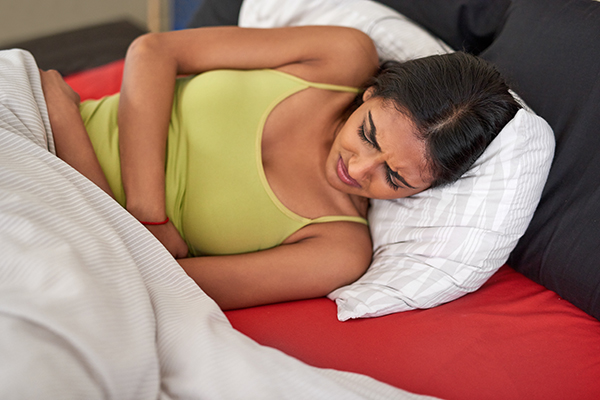The medical term for heavy periods is menorrhagia. To make this diagnosis, doctors ask patients to record their bleeding days and how much sanitary protection is required.

How to Cope With Heavy Periods
Health professionals can also carry out other tests to rule out underlying medical conditions that might require treatment. The next cause of action is dependent on whether these exist.
Here are ways of coping with heavy periods.
1. Period Panties
Period panties come in handy for women that bleed heavily. They are also a good option for people with a regular flow but who bleed heavily at night.
The best period panties in the market can be used on their own or are super to back up other sanitary protection methods.
These are healthy, comfortable, reliable, and eco-friendly. While they will not stop the heavy bleeding but will make those days much more bearable.
2. Use Heating Pads
At times, heavy flow is accompanied by abdominal cramps or back pain.
A hot heating pad helps relax the muscles involved. This helps ease the pain and cramping involved.
All you need to do is lie down or sit comfortably and apply the heating pad to the back or abdominal area.
3. Get on the Pill
If you are not on hormonal contraception, your doctor might prescribe contraception pills to counter heavy periods.
Pills, patches, and rings are the most common hormonal contraception methods. These work by thinning the uterine lining. This not only relieves menstrual cramps it also minimizes bleeding in people with menorrhagia.
Generally, you will use the ring, patch, or pills for 21 days and get your period on the seven days. Some pills ensure hormones remain in the body throughout the month. These can result in fewer or no periods at all.
You can also get hormonal shots. Some women find these more manageable than taking daily pills.
4. Surgery
If medications do not help, surgery can be considered as a final resort. This is not taken lightly, however. Your doctor will assess specific parameters, including the underlying causes, the severity of symptoms, and whether a woman is of childbearing age.
Surgeries done to manage menorrhagia include:
- uterine artery embolization
- focused ultrasound
- myomectomy
- endometrial ablation
- endometrial resection
- hysterectomy
5. Take Care of Yourself
Women with heavy menses lose a lot of blood. It helps to take it easy for a few days, take iron supplements, eat dark chocolate and work out.
Again, these things will not reduce your flow, but they can help make your period more manageable and protect your general health as well.
If you suspect your flow is heavier than normal or usual, be sure to speak to your GP. This is the first step to getting to the bottom of the problem and evaluating the best options to remedy the problem.
